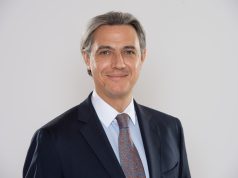By Judith Lathamas the world marks the third anniversary of the U.S.-led invasion of Iraq, which deposed the brutal regime of Saddam Hussein, a deadly insurgency rages on and sectarian violence between Sunnis and Shi’a is on the rise, prompting some analysts to worry about the prospects of a civil war.
A. Heather Coyne, former chief of party in Iraq for the U.S. Institute of Peace, said that over the past 3 years the views of Iraqis regarding the situation have very much changed “ swinging from sheer exuberance immediately following the invasion to a profound discouragement in the aftermath of the constitutional process. Speaking with host Carol Castiel of VOA News Now’s Encounter program, Ms. Coyne said that reality has set in and Iraqis are beginning to realize there are no quick fixes in creating a functional and representative government and managing a deeply divided society. According to her, that process may take a decade, but the United States still has a critical role in helping the Iraqis consolidate a democracy.
Clifford May, president of the Foundation for the Defense of Democracies, agreed that the difficulty of the Iraqi political transformation from a despotic regime to the first democracy in the Arab world should not be underestimated “ although it was initially. And he noted that it only takes a small minority of people to sabotage the process “ for example, last month’s bombing of the Shi’a shrine in Samara.
A. Heather Coyne said it is not yet clear whether Iraq will slide into civil war or will be able to move toward a government of national unity. Clifford May agreed that Iraqi democracy is on a slippery slope, and he noted that democracy implies not only majority rule but also minority rights, the rule of law, an independent judiciary, and a free press.
A. Heather Coyne noted that Iraqis have a pressing need to distance themselves from the U.S. government, and the appropriate U.S. role is one of behind-the-scenes encouragement of Iraqi leaders. According to Clifford May, U.S. Ambassador Zalmay Khalilzad is doing an impressive job in helping Iraqis form a national unity government in a society where the concept of making compromises is not well ingrained.
Whether or not the militias can become part of a national security force depends less on their training than on the political will of the Shi’a leadership, according to A. Heather Coyne. Clifford May said he doubts that the United States will be able to withdraw its troops in the next year or two and he stressed the importance of defeating al-Qaida in Iraq before leaving. Both he and Ms. Coyne agree that the long-term hope for Iraqi society depends on the strengthening of civil society.





